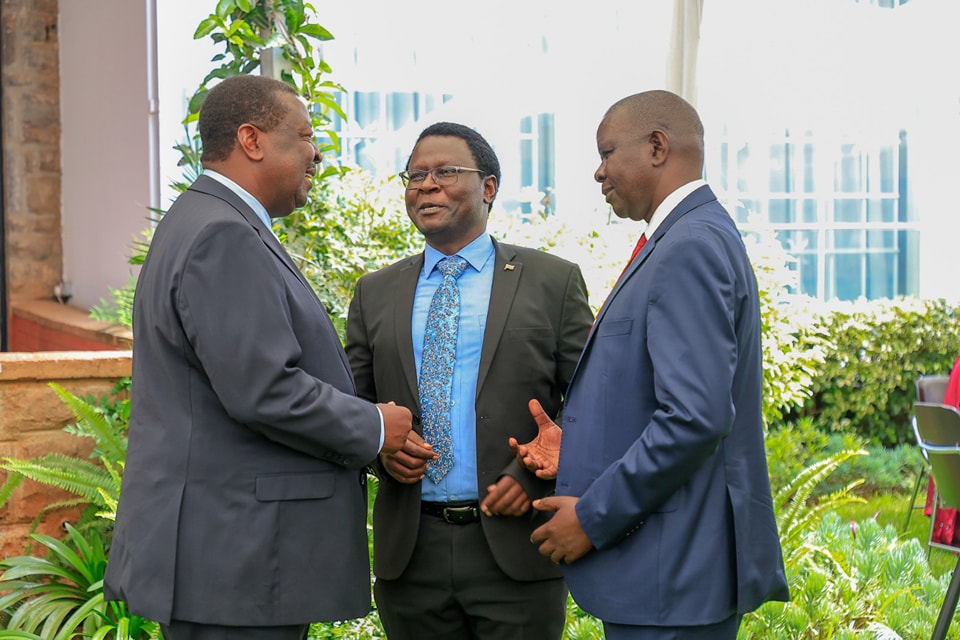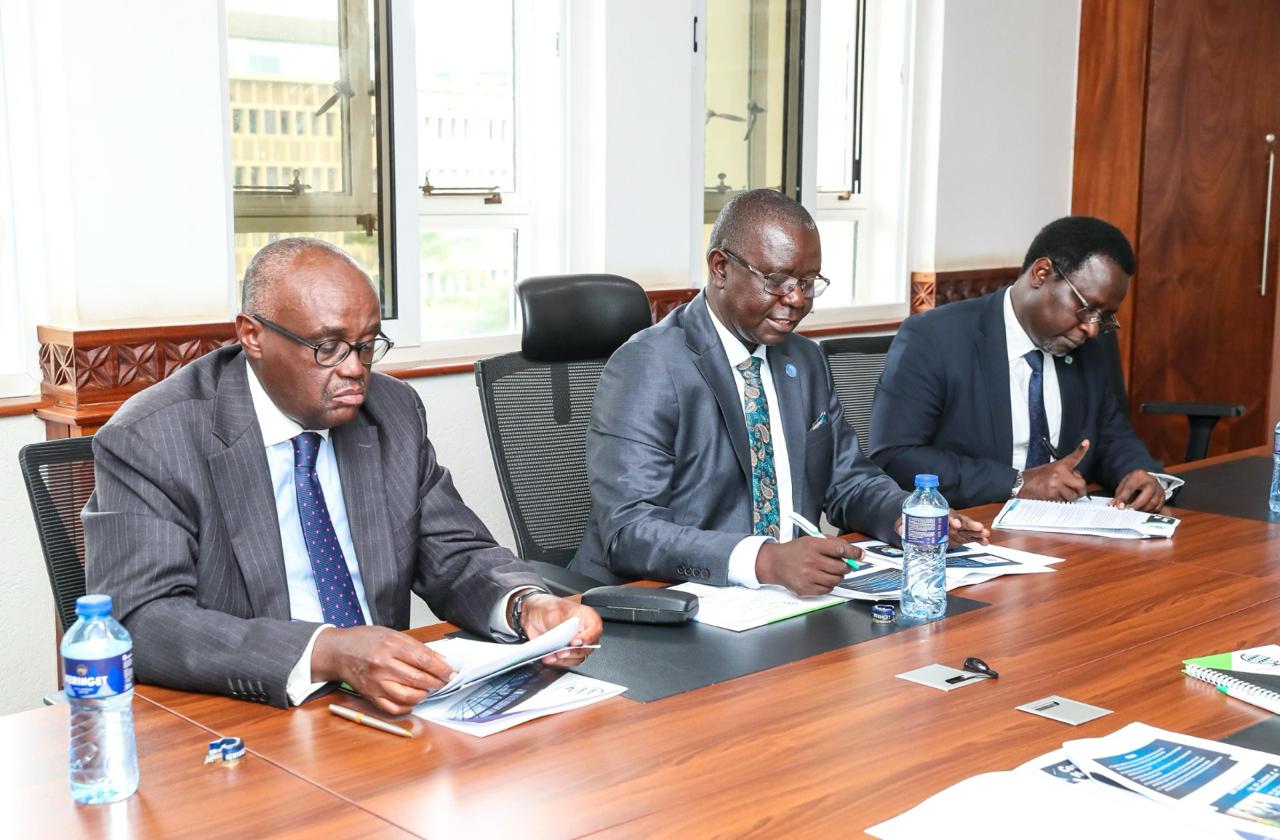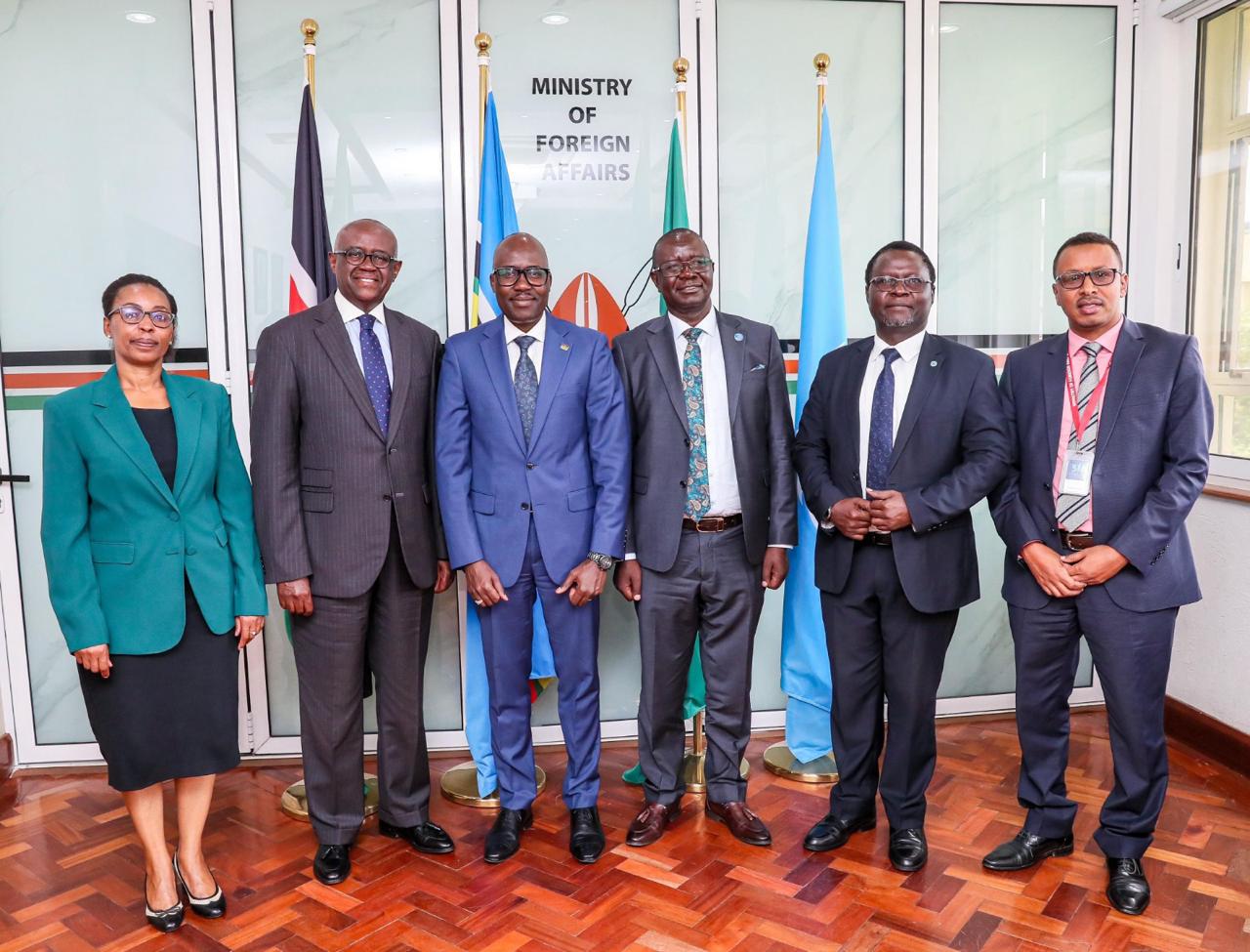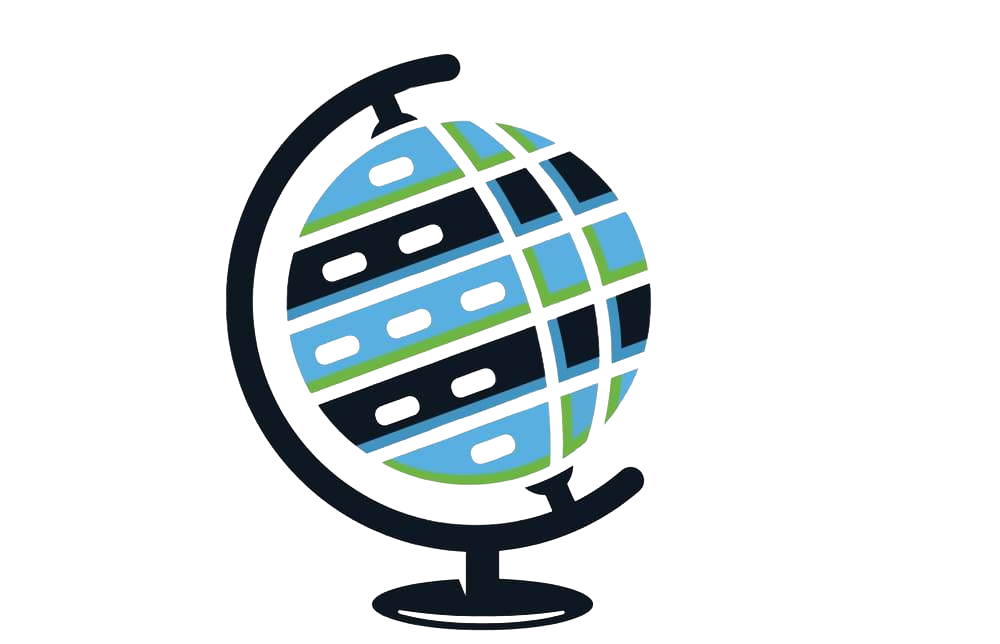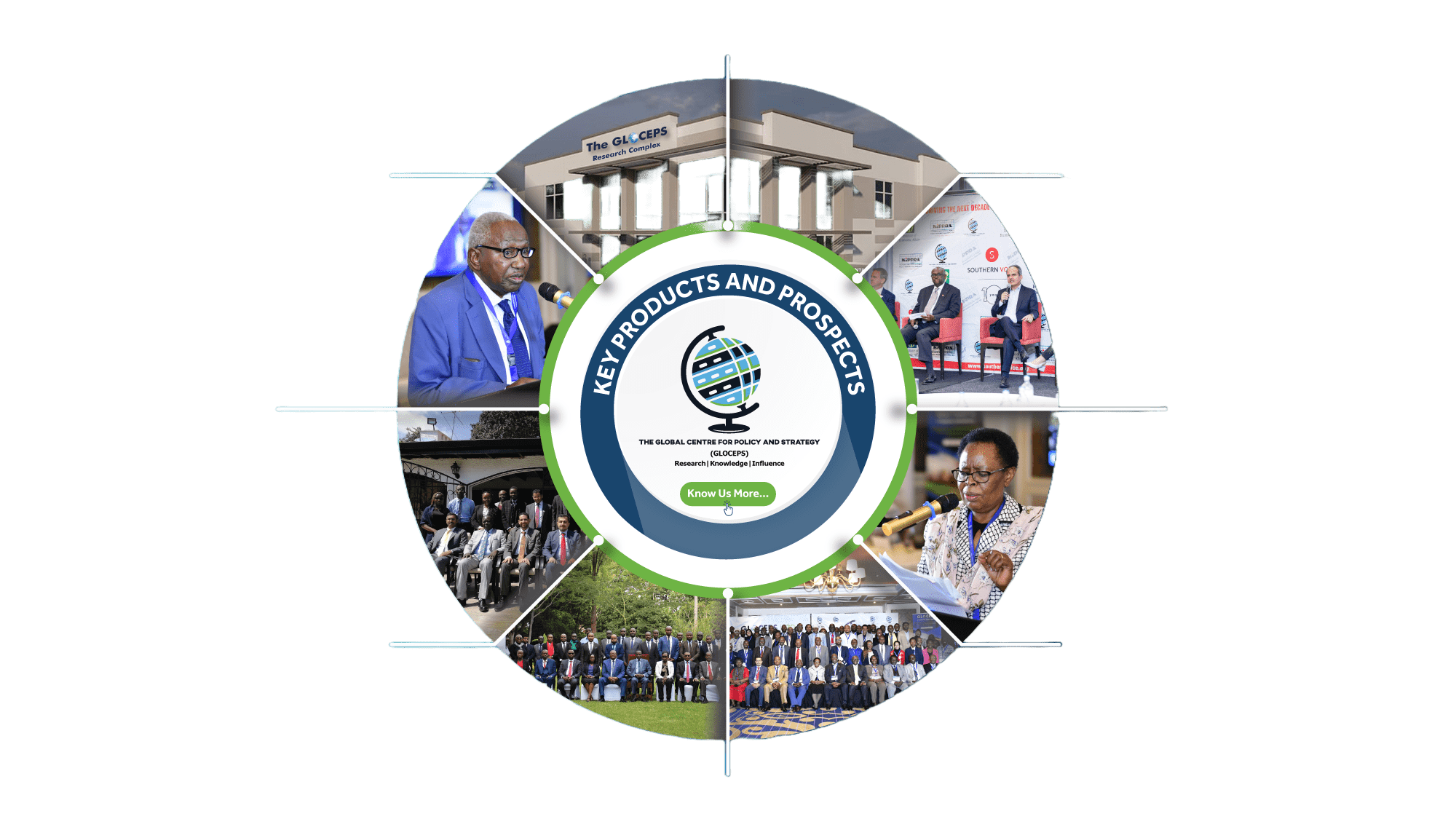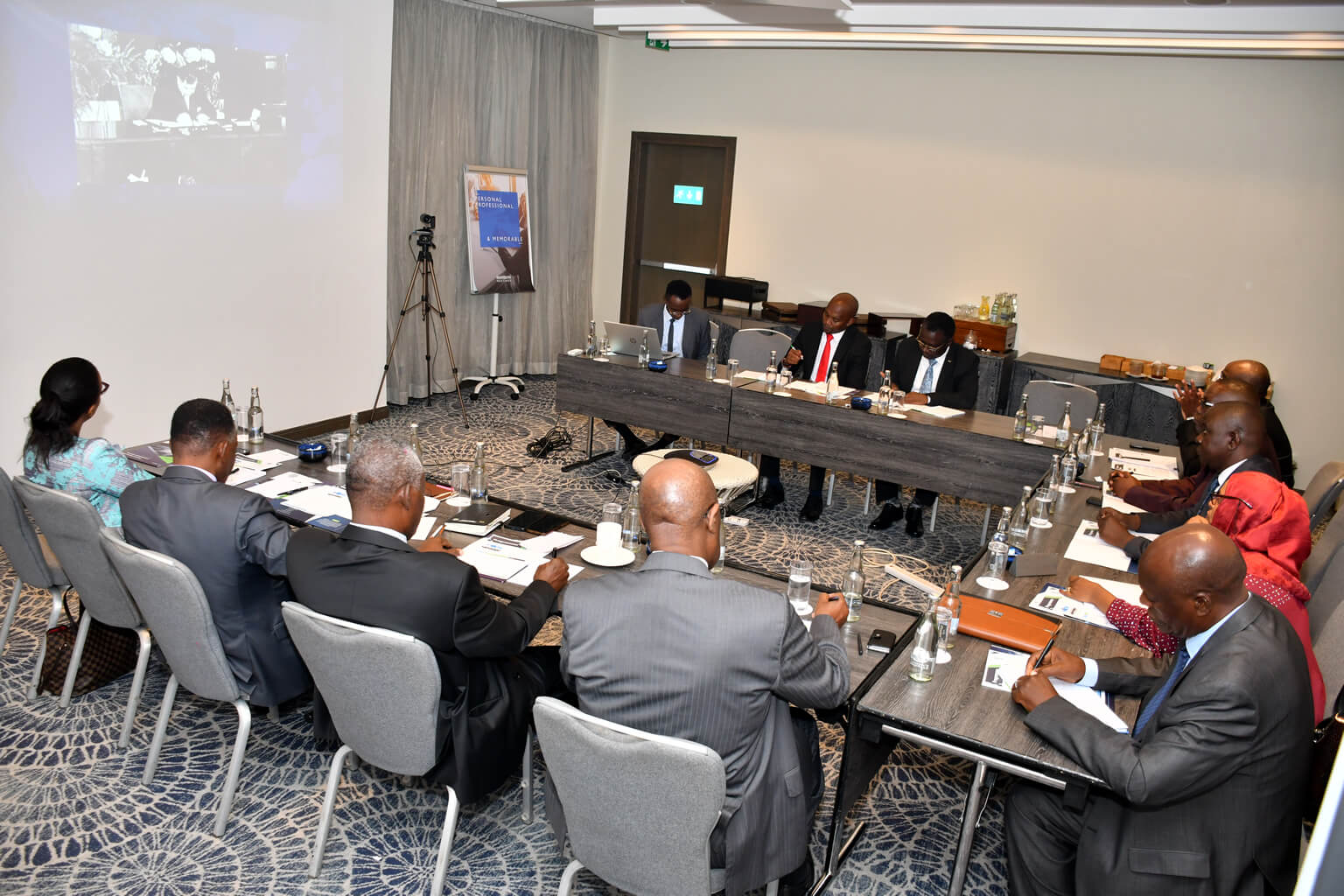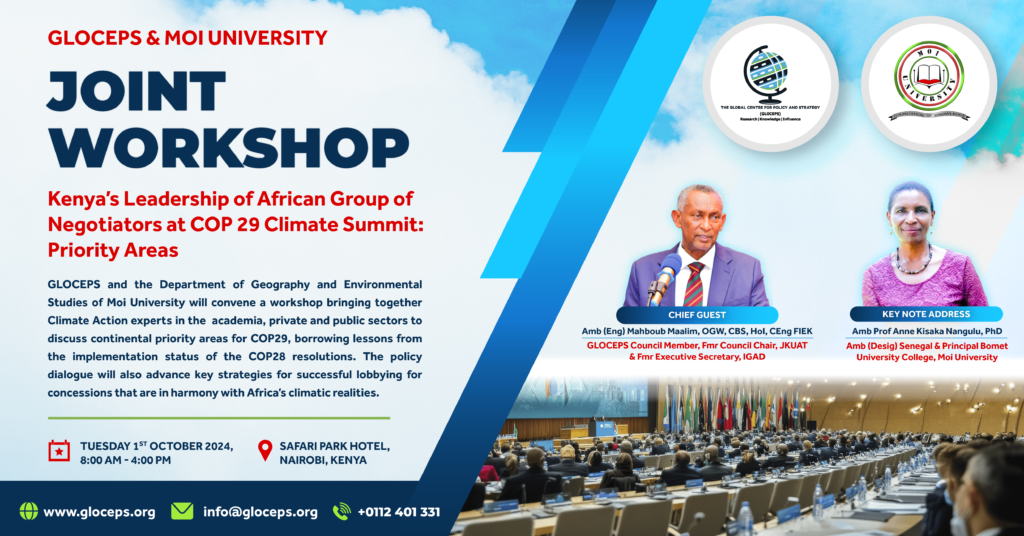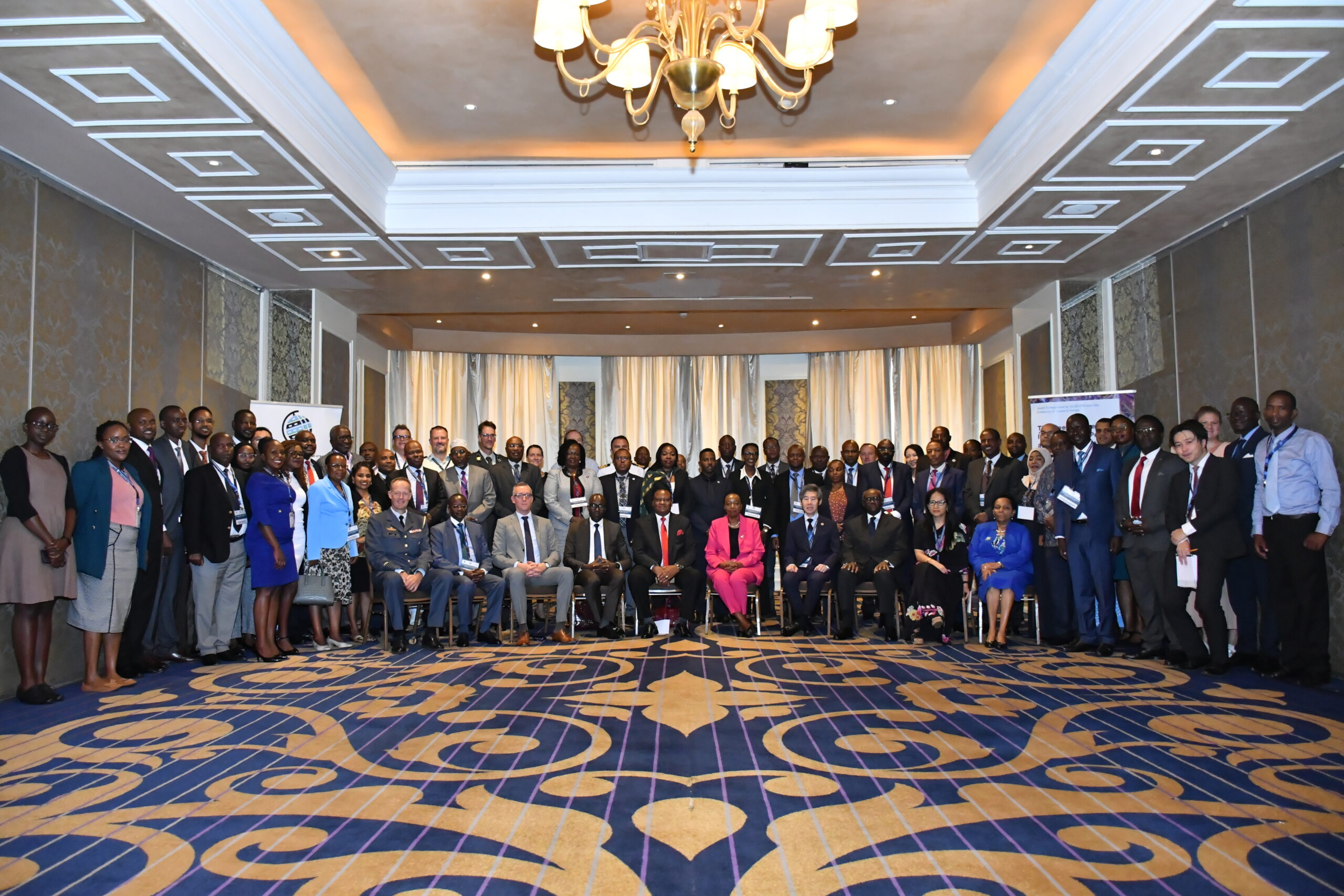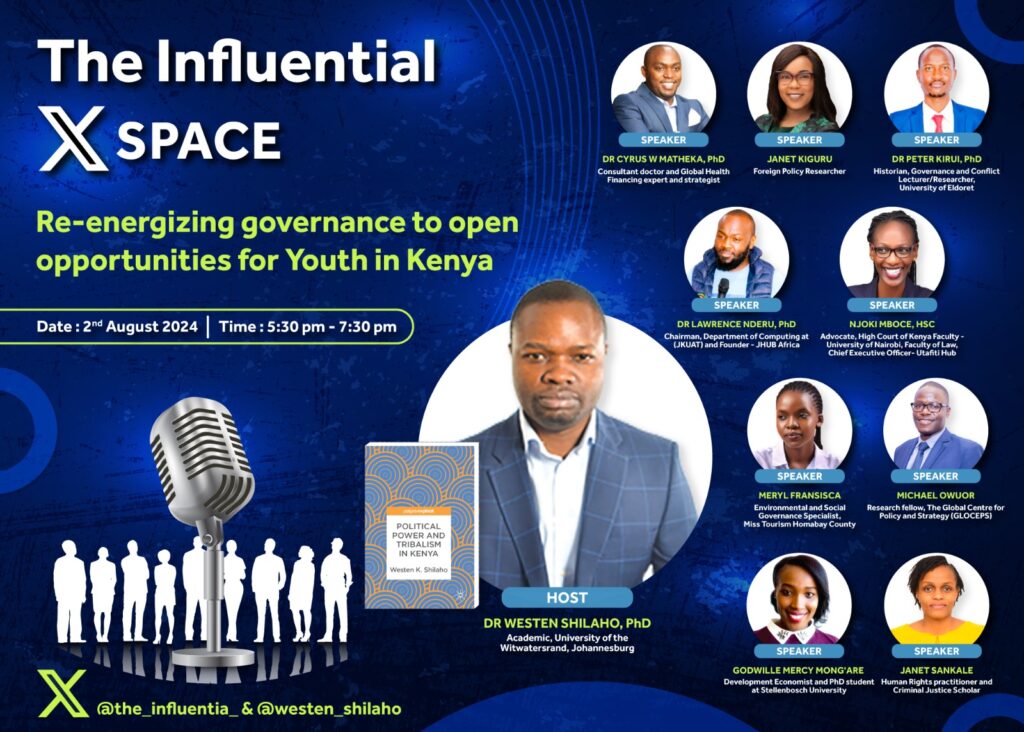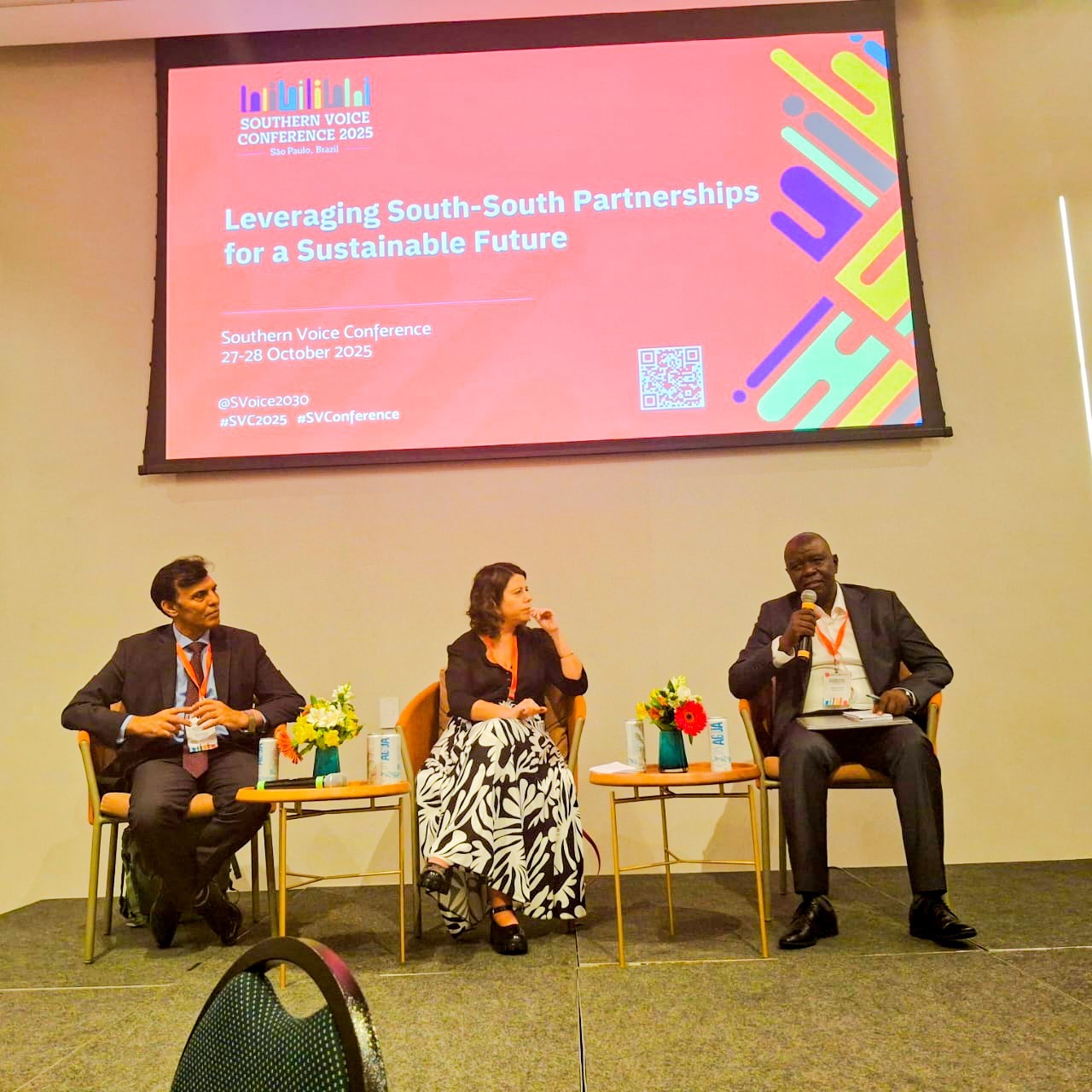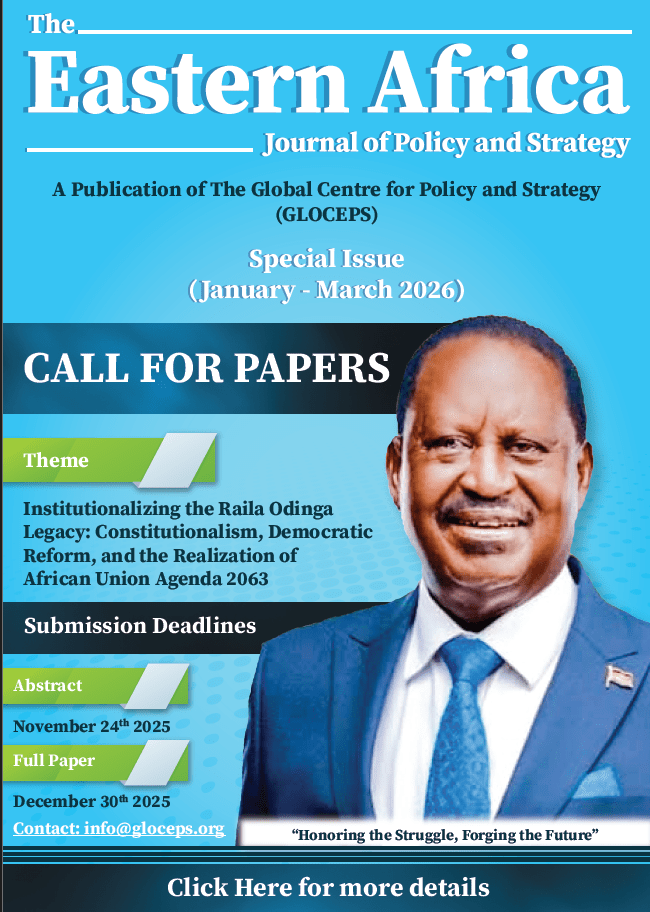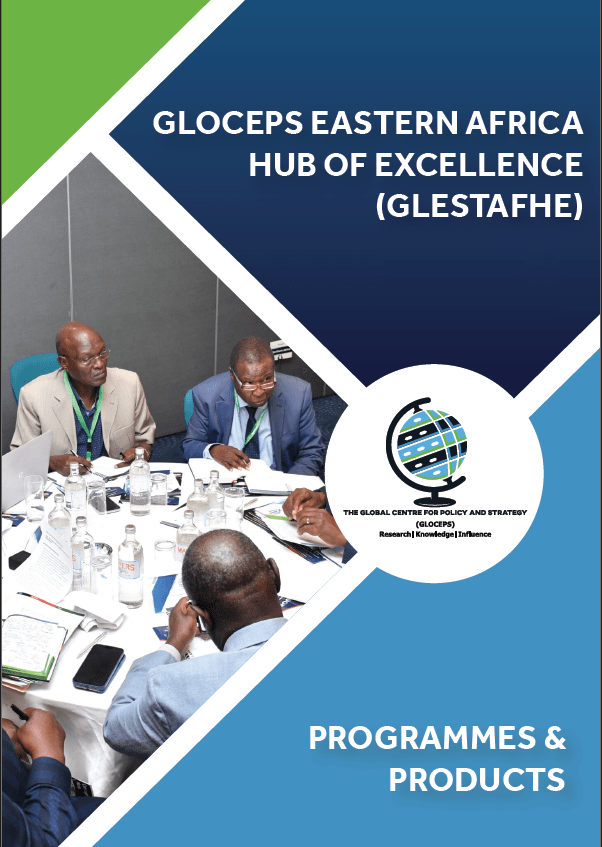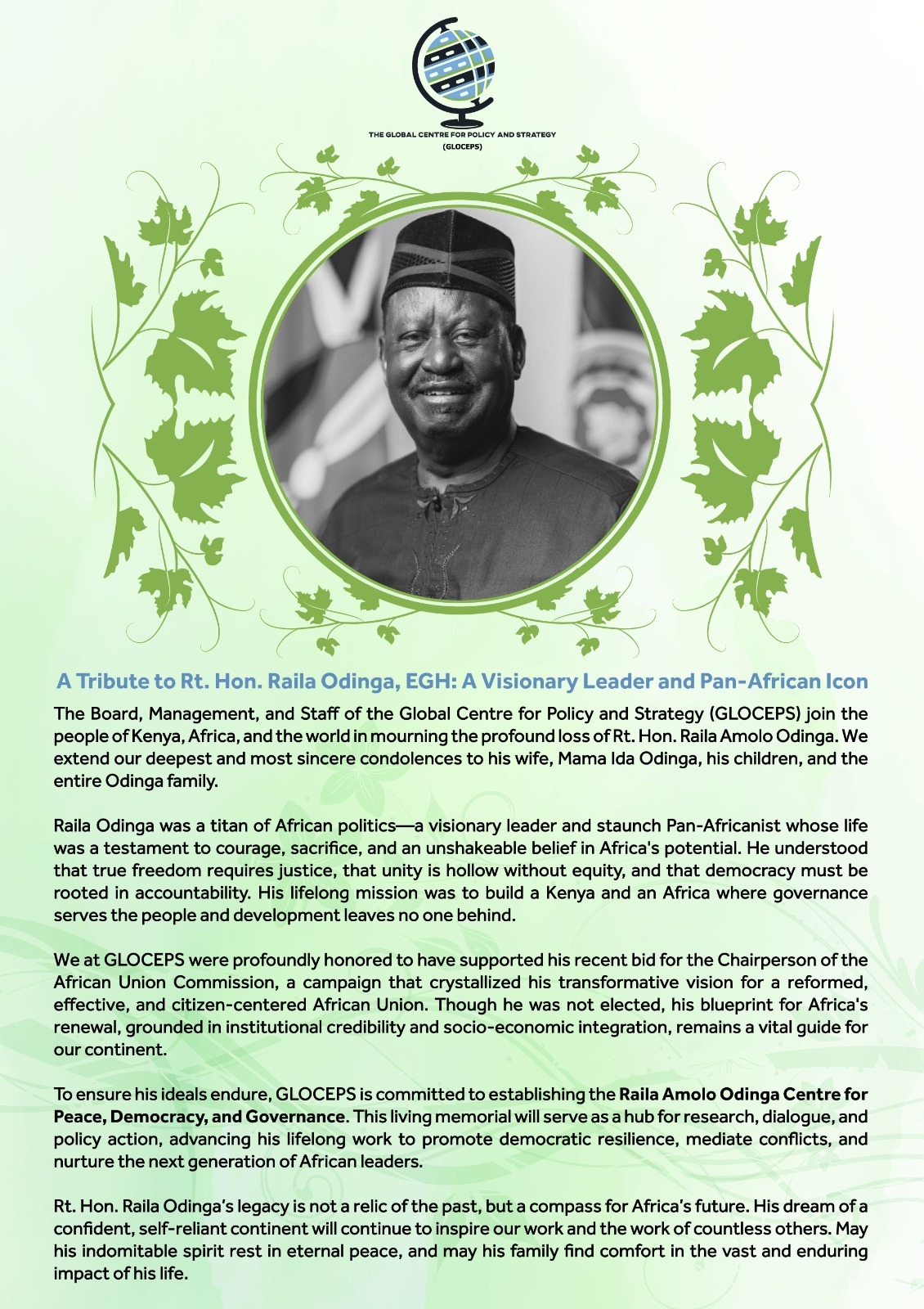- Research
- Knowledge
- Influence


 DISCOVER MORE
DISCOVER MORE
 DISCOVER MORE
DISCOVER MORE
 DISCOVER MORE
DISCOVER MORE
 DISCOVER MORE
DISCOVER MORE
 DISCOVER MORE
DISCOVER MORE
Weekly Briefs
Weekly Influential Brief
For this transformative potential to be realised, the fund must ignite a whole-of-government crusade, insulated from political cycles.
Weekly Influential Brief
Whether youth contributes to peace or disorder depends on how political actors, institutions, and information shape their engagement before election day.
Weekly Insights
Products & Prospects
Policy Dialogue Forums
Recent Articles
Policy Brief
Africa approaches the 30th Conference of the Parties (COP30) in Belém at a moment of unprecedented climate urgency and destabilizing geopolitical shifts. The continent faces cascading climate impacts such as droughts, floods, and food system disruptions that erode development, destabilize governance, and fuel insecurity. This crisis is intensified by a volatile global diplomatic landscape. President Donald Trump’s renewed withdrawal of the United States from the Paris Agreement in 2025, coupled with his September 2025 United Nations General Assembly (UNGA) speech dismissing climate change as a hoax, marks a fundamental shift in global climate consensus.
Weekly Influential Brief
The Kenya’s continued placement on the 2024 Financial Action Task Force (FATF) and 2025 European Union (EU) grey lists poses serious economic and reputational risks. Prolonged grey listing could hinder Kenya’s participation in the $90 billion EU–East Africa trade flow, pushing potential investments toward regional competitors such as Rwanda, Ethiopia, and Tanzania. These listings highlight deep weaknesses in Kenya’s Anti-Money Laundering and Counter- Terrorism Financing (AML/CFT) systems. Without urgent reforms, the country’s economic stability and its role as a regional financial hub are in jeopardy. PricewaterhouseCopers (PwC) Kenya (2025) estimates that, if unaddressed, compliance costs for businesses could rise by 30%, further discouraging investment and slowing economic growth.
Weekly Influential Brief
The emergence of trafficking pipelines that channel Eastern African citizens into Russia and, in some cases, onto the frontlines of the Russia Ukraine war constitutes a multidimensional challenge. It combines elements of organised crime, exploitative labour, and irregular migration, all set against the backdrop of global geopolitical conflict. Traffickers and intermediaries are exploiting economic vulnerability and weak regulatory environments to lure individuals under false pretences of employment or training, subsequently exposing them to militarisation or forced labour. This paper examines four interrelated issues, which include; the entry point ecosystem of recruitment networks; trafficking impacts on Eastern Africa; gaps in regional security governance; and the political– economic conditions that sustain vulnerability
Weekly Influential Brief
The Jubaland crisis has evolved from a federal–state dispute into a grave threat to Somali stability and a flashpoint for regional rivalries. The confrontation between the Federal Government of Somalia (FGS) and Jubaland under President Ahmed Mohamed Islam (Madobe) has been militarized, diverting scarce military resources from counter-insurgency against Al-Shabaab. This has generated security vacuums, strengthened the insurgency, and undermined trust in Somali institutions. Regionally, Jubaland’s instability is entangled in broader rivalries. Kenya sees it as a buffer against Al Shabaab and essential for the Lamu Port-South Sudan- Ethiopia-Transport (LAPSSET) corridor.
Policy Brief
The 2025 youth-led uprising in Nepal, which culminated in the resignation of Prime Minister KP Sharma Oli, serves as a critical case study for political instability driven by a convergence of youth specific grievances. This policy brief argues that the broader Eastern Africa region, encompassing the member states of the East African Community (EAC) and the Intergovernmental Authority on Development (IGAD), is replicating the Nepal precipitating conditions, which include systemic political exclusion, entrenched corruption, economic despair, and digital repression.
Policy Brief
The recurring Generation (Gen Z) protests in Kenya, driven by demands for governance reforms, transparency, and political accountability, reflect both a warning signal and a potential catalyst for democratic renewal. If the state responds constructively to these protests, they offer an opportunity to deepen participatory democracy, enhance institutional responsiveness, and better align governance with the values and aspirations of the youth. Conversely, if mishandled, especially through excessive force or dismissiveness, these protests could heighten national tensions, erode public trust in institutions, and destabilize the country.
Weekly Influential Brief
Ethiopia’s accession to BRICS in January 2024shifted the balance of influence in Eastern Africa, giving Addis Ababa privileged access to alternative finance, diplomatic networks, and a stronger voice in global governance debates. For Kenya, long regarded as the region’s diplomatic and financial hub, this development introduces both urgency and risk. Kenya has expressed interest in joining BRICS as part of Nairobi’s South–South cooperation agenda, yet the move intersects with Kenya’s status as a Major Non-NATO Ally of the United States (US), exposing it to heightened scrutiny and possible pushback from Washington.
Policy Brief
Artificial Intelligence (AI) is rapidly reshaping Africa’s socio-economic and political landscape. For a continent where over 60% of the population is under 25, AI represents a double-edged sword. It holds immense potential to drive inclusive growth, improve governance, stimulate the creative economy, and enhance learning outcomes. However, its unchecked spread and unethical use present grave threats. These include misinformation, radicalization, cybercrime, political destabilization, and the marginalization of African identities through biased datasets.
Policy Brief
Eastern Africa finds itself at a crossroads as global political dynamics shift rapidly. The rise of ultra-nationalism and protectionist policies in Western nations, notably the United States (US) and the European Union (EU), has far-reaching implications for the region’s security preparedness, economic stability, humanitarian capacity, and geopolitical alliances. While these developments pose considerable risks, they also open new avenues for recalibrating foreign relations, strengthening intra-African trade, and advancing regional integration.
Policy Brief
The brief opines that the global proliferation of virtual currencies portends a rise in crypto-driven Transnational Organized Crimes (TOCs) risks to the Eastern Africa region if effective dissuasive
measures are not implemented. The usage of cryptocurrencies globally rose by over 880% in 2020 with Kenya and Tanzania ranked 5th and 19th globally. Virtual currencies are digital forms of money that exist solely in electronic form including Cryptocurrencies, Centralized Virtual Currencies, and Central Bank Digital Currencies (CBDCs).
Welcome to The Global Centre for Policy and Strategy
The Global Centre for Policy and Strategy (GLOCEPS) is a think-tank based in Nairobi, Kenya. GLOCEPS is a leading centre of excellence in policy influence and strategy formulation. The Centre provides strategic linkage between experience and research by bringing together outstanding professionals, thought leaders and academia to advance key issues on peace and security. GLOCEPS work cuts across five pillars, namely, security and defence; foreign policy; transnational organized crimes; governance and ethics; and development.
